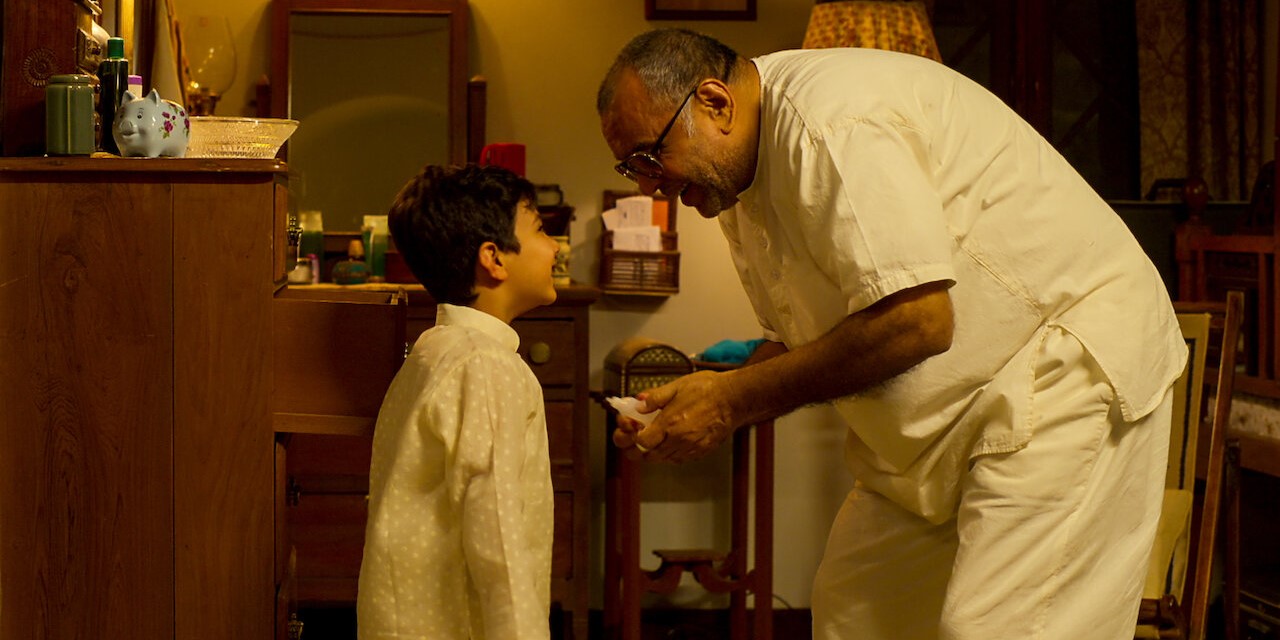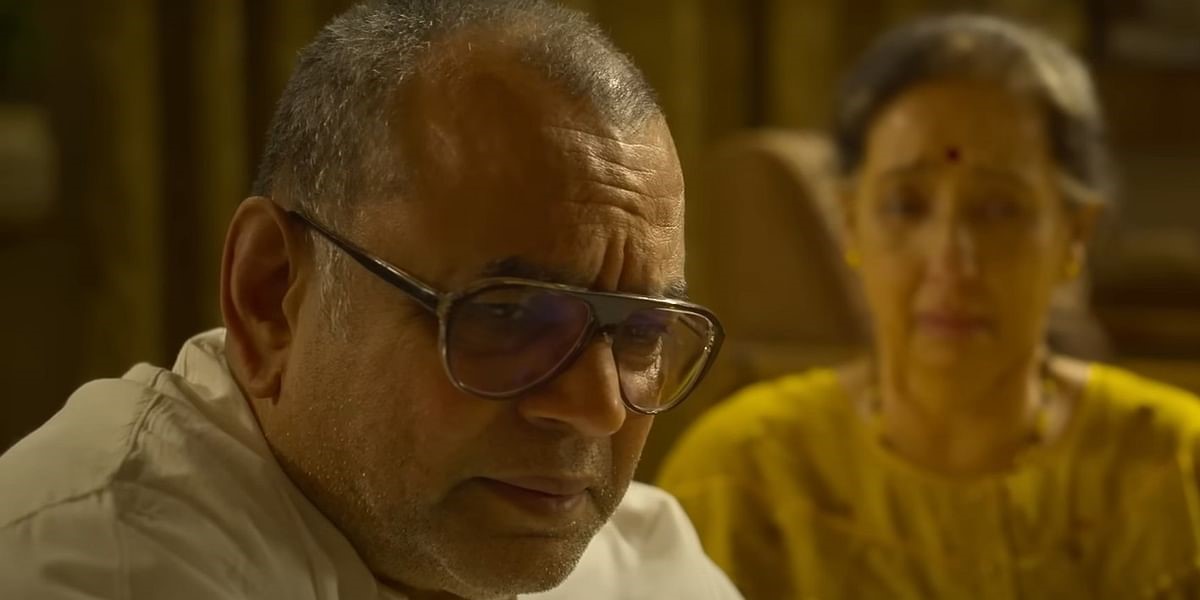‘Shastry Viruddh Shastry’ narrates the story of the Shastry family, whose cherished 7-year-old boy, Yaman, is adored by his grandparents, Urmila and Manohar. They live in the serene hill station of Panchgani, while Yaman’s parents, Malhar and Mallika, are occupied with their own lives in Mumbai and only visit once in a while. The relation between the patriarchal line is quite dysfunctional, while Manohar cherishes his grandson, he is harsh and devastatingly critical of Malhar. Afraid they will not be able to bond with their son, Malhar and Mallika, decide to take him with them as they relocate to the US. This decision leads to a tense legal battle when Manohar vehemently opposes the separation, sparking a custody conflict.
The film intricately explores the modern-day dilemma faced by urban parents who heavily rely on grandparents for childcare. It delves into the complexities of familial relationships, particularly the clashes between a father and a grandfather, shedding light on patriarchal dynamics and their repercussions. Given how contentious and personal the themes in the film are, one might ask themselves if such a case has ever taken place and if the movie is based on a true story.
Is Shastry Viruddh Shastry Inspired by a True Story?
Yes, ‘Shastry Viruddh Shastry’ is a remake of the directors’ Bengali film, ‘Posto,’ which was inspired by a 2007 Calcutta High Court case to determine who had rights over the child, the absentee parents or the nurturing grandparents. The directors felt that the debate was more relevant than ever, with statistics estimating that 7.5 million children in the USA are being raised by their grandparents. The same is true for about half of China, with parents having even less time.

Chief assistant director of ‘Posto,’ Aritra Mukherjee, had a similar living situation. His children were raised by their grandparents in Shantiniketan, while he and his wife worked in Kolkata. Such a story has become increasingly common in India and across the world, with living spaces and time in urban centers becoming increasingly restricted, parents would find it preferable to have their children grow up in the open ancestral homes of their grandparents. Aritra Mukherjee’s kids even called their grandmother “Maa,” and many a school celebrates Grandparents’ Day to honor their contributions in raising the next generation.
Since the 2007 Calcutta High Court case, many similar cases have been heard across India, contending custody of the children between parents and grandparents. However, most cases are held over substantially more egregious actions and situations than seen in the film. While the circumstances vary drastically, for the majority of cases, custody is given to the parent or parents, as they are recognized to be the natural guardians. As seen in the movie, the grandparents can attempt to prove that their children and incapable of caring for their grandchildren, and attempt to take custody in a similar manner to a child being taken by foster care.
Cases of grandparents actually taking custody of their grandchildren when the parents are law-compliant adults are virtually unheard of. At best, the court grants them visitation rights, and if the worst were to happen and the parents were deceased, custody of the children falls primarily to the paternal grandparents before any other relative.
Given the information on prevalent court cases regarding the issue, the changing social landscape, and the directors’ own source of inspiration, ‘Shastry Viruddh Shastry’ is an authentic if dramatized portrayal of rare custody cases between parents and grandparents. For better or for worse, the trend of parents living apart from their children and entrusting them to their grandparents is one that is on the rise, and finds a poignant portrayal in ‘Shastry Viruddh Shastry.’
Read More: Best Indian Shows on Hotstar


You must be logged in to post a comment.